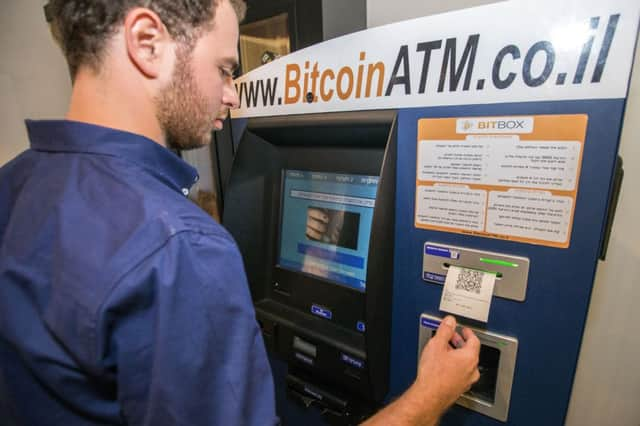Digital cash could cost in divorce actions


It might sound like a cross between LA Law and Star Trek, but stashing your cash in electronic form to keep it out of your spouse’s reach is attracting increasing interest worldwide. Although you may have heard of Bitcoin, the details of how to use it – and how it might affect divorces – are often unclear, not helped by sensationalised and inaccurate reporting.
Put simply, Bitcoin is a new system of digital cash that lets users transfer funds anywhere around the world, instantly, at little or no cost. It merges the concepts of e-mail and cash, and simultaneously takes banks out of the equation. Breakthroughs in technology now enable a massive global network of computers to carry out the traditional role of financial institutions – to verify the validity and value of currency units. This network now collectively maintains one single ledger (the “block chain”) of every bitcoin transaction that has or will ever take place. This record is permanent and cannot be altered (eg by fraudsters), and because there are no third parties, transactions are cheaper and faster.
Advertisement
Hide AdAdvertisement
Hide AdSecurity is provided not by bank vaults and security guards, but by mathematics. Provided you keep your passwords (guarding your private keys) safe, you have complete control of your finances. Contrary to reports, Bitcoin itself has never been hacked, and no-one has the capacity to simply print more digital money – unlike the status quo, where banks create more currency as needed. Crucially, the supply of Bitcoins has been limited in advance. A fixed number of new bitcoins are introduced into the system about every ten minutes, a process that will continue until the final total of 21 million is reached in around 2140.
Running across thousands of computers worldwide and with no central organisation vulnerable to attack or corruption, the reality is that it is now no more possible to stop Bitcoin in its tracks than it would be to turn off the internet. Demand continues to outstrip supply and the price, whilst volatile, has rocketed, attracting a wide cross-section of speculators.
As Bitcoin becomes more popular, it’s clear that some will look at converting assets to be stored out of sight of their other half (or anyone else who might be interested). So if you’re worried your tech-savvy spouse might convert their sterling into bitcoins, what are the options?
Scots divorce law provides a framework for financial disclosure. Courts require some basic information to start up a divorce action, and can also order parties to provide details of their resources. This is rarely done, since where there is suspicion of nondisclosure, the usual practice is to get a court order requiring third parties – such as banks – to produce the information.
However, the crucial feature of bitcoins is that there is no third party or institution which issues them, and so nobody against which to enforce such orders. Ultimately, since the only proof of a holding is the private key, if someone denies they have one, there is nothing – barring a time machine, or the application of methods outlawed by the Geneva Convention – that can force them to tell you about it. Nondisclosure may be a contempt of court, but some might be willing to accept the consequences to save parting with a few million quid’s worth of bitcoins (which could be re-exchanged for cash later).
It’s also hard to see how you could directly investigate a suspected holding. While anyone can view details of every single Bitcoin transaction that has ever taken place on the block chain, without personally identifiable data linked to that, complex analysis is required to trace money flows until they arrive in the hands of known individuals or exchanges. Such an analysis brought down the Silk Road, the illegal drugs and armaments network, but most people don’t have access to the expertise and resources of the FBI. Dealing with exchanges – which might be anywhere in the world – would also introduce jurisdictional problems and vastly increase the cost of divorce litigation.
While there remain many issues to be worked out, it’s worth keeping an eye on these risks – or opportunities. Equally, although Bitcoin itself is secure, some of the businesses interfacing with it are risky, with one exchange filing for bankruptcy in February following the “misplacement” of $450,000,000.
Debates will continue as the technology evolves, but perhaps the greatest risk to your electronic money in the future will come from hackers, not divorce lawyers.
Advertisement
Hide AdAdvertisement
Hide Ad• Dianne Millen is a family law solicitor with Morton Fraser. Dug Campbell is founder of the Edinburgh Bitcoin Meetup and organiser of the first Scottish Bitcoin Conference, which is taking place in Edinburgh on 23 August
SEE ALSO